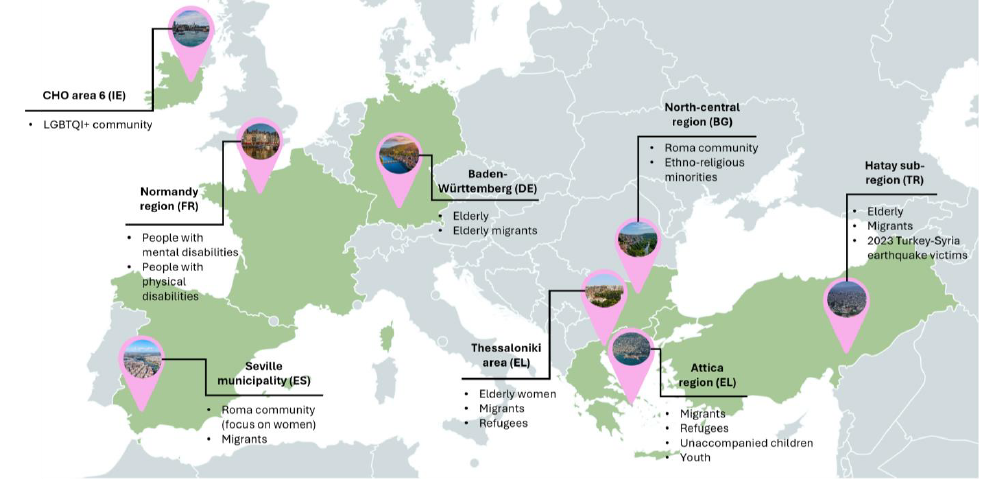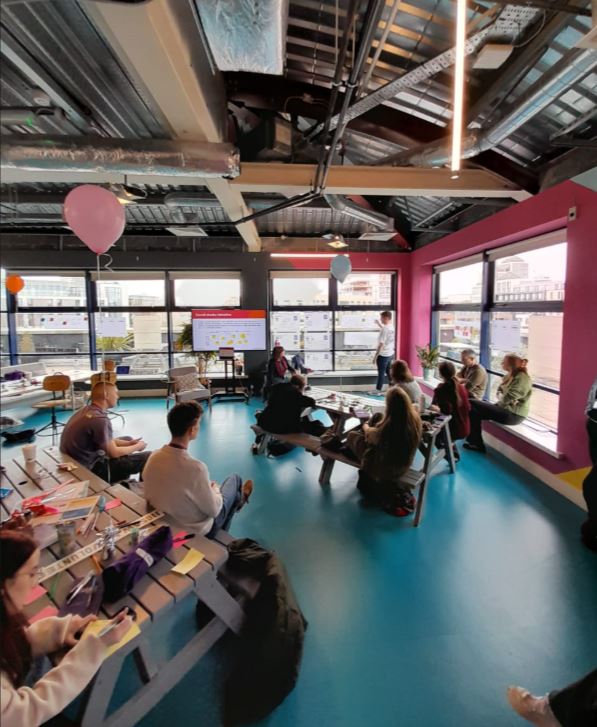A youth-led vision for social media and mental health
A youth-led vision for social media and mental health

At Jigsaw, we believe that the voices and lived experiences of young people must be at the heart of conversations about their mental health.
We are proud to introduce a new policy brief, “Social Media & Youth Mental Health,” a youth-led document that puts young people’s insights and ideas at the forefront of building healthier, safer digital spaces.
This policy brief was created through a youth-led consultation process. Young people aged 15 to 24 from Jigsaw Youth Advocates and Comhairle na nÓg engaged with the latest research and policy developments on social media. Through facilitated discussions, they developed policy recommendations grounded in their own lived experiences.
The document is a direct response to a growing concern—raised repeatedly in Jigsaw’s work with young people, families, and teachers—about the role of social media in shaping youth mental health. It aims to shift the policy conversation away from blanket restrictions and toward a more flexible, rights-based approach that empowers young people with the tools they need to navigate the digital world safely and meaningfully.
Key Recommendations from Young People
The young people involved in the brief challenged simplistic narratives, such as the usefulness of broad measures like ‘screen time’ and instead advocated for policies that acknowledge both the risks and benefits of social media. They made the following key recommendations for policymakers, educators, families, and social media companies:
- Move Beyond Blanket Restrictions: Policies should be smart and flexible, equipping young people with the skills to engage safely online rather than restricting their access to spaces that offer connection and community.
- Make Education Age-Appropriate and Inclusive: Digital education curricula should be regularly updated to reflect new platforms and trends and be tailored to the diverse realities of young people, from younger children to young adults.
- Adopt a Harm-Reduction Approach: Instead of focusing on worst-case scenarios, education should provide non-judgmental tools that help young people manage risks, build resilience, and make informed choices.
- Strengthen Shared Responsibility: All stakeholders—from platforms to policymakers—must share the responsibility for online safety. Young people called for safety to be built into platforms by design, with greater transparency and user control.
- Embed Youth Voices: To ensure policies are effective and relevant, young people must be meaningfully involved at every stage of development, including through youth-informed impact assessments for new legislation.
- Invest in Youth-Led Research: Future research should be co-designed with young people to go beyond risk-focused narratives and examine positive digital experiences and effective interventions.
You can access the policy Social media policy brief here.


